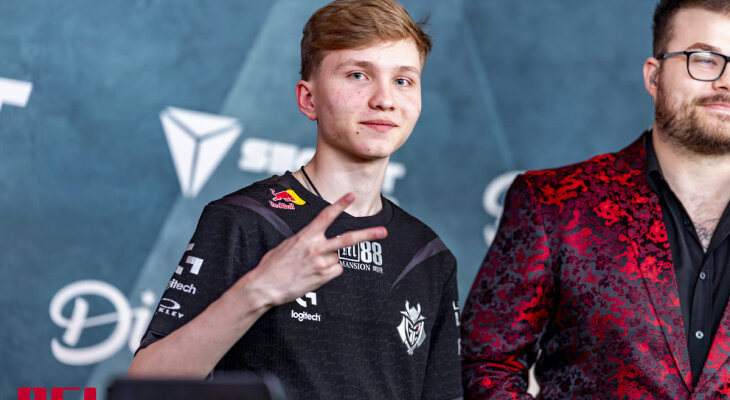The competitive arena of Counter-Strike 2 isn`t confined solely to the digital battlegrounds where virtual bullets fly and strategies unfold. Increasingly, the fiercest skirmishes are fought in boardrooms and public forums, over tournament schedules, team commitments, and the very structure of the professional circuit. Recently, a public spat between prominent tournament organizers has pulled back the curtain on this intense, often-fraught, behind-the-scenes battle.
The Gauntlet Thrown: PGL Accuses
At the heart of the current contention stands Silviu Stroie, CEO of PGL, a seasoned tournament organizer known for its high-production-value events, including several CS:GO and CS2 Majors. Mr. Stroie recently ignited a firestorm with pointed accusations directed at fellow industry giants, ESL and BLAST. His claims, aired on X (formerly Twitter), painted a picture of concerted efforts to undermine PGL`s events and establish a monopolistic hold over the Counter-Strike 2 ecosystem.
The immediate spark for this public outburst was a perceived scheduling conflict for late 2025. PGL`s Bucharest 2025 event was set to conclude on November 2nd, while IEM Chengdu 2025, organized by ESL, was slated to begin just a day later, on November 3rd. This tight turnaround, often a nightmare for professional teams and players due to travel and preparation demands, became the focus of Stroie`s ire.
Mr. Stroie did not mince words, alleging that ESL and BLAST were “pressuring and threatening” teams to compel them to decline invitations to PGL tournaments. He posited that the scheduling overlap was no mere coincidence but a deliberate, “joint strategy” to “continue the monopoly” and actively prevent teams from participating in PGL events. To bolster his claim, he asserted that PGL had announced its 2025 and 2026 tournament dates on March 31, 2024, long before ESL and BLAST allegedly announced their competing events on October 3, 2024 – supposedly with full knowledge of PGL`s calendar.
The Plot Thickens: A Calendar Conundrum
However, as is often the case in high-stakes disputes, the narrative quickly encountered an inconvenient truth. A closer look at the historical timeline of announcements revealed a rather awkward discrepancy in Mr. Stroie`s account. While PGL indeed unveiled its 2025 schedule on March 31, 2024, both ESL and BLAST had, in fact, announced their preliminary 2025 tournament dates even earlier, on March 11, 2024. The October 3rd announcements by ESL, to which Stroie referred, were not for initial dates but rather for more granular details – specific locations, formats, and other logistical particulars.
This critical misstatement by the PGL CEO fundamentally altered the context of his accusations. If ESL and BLAST had already published their 2025 calendar before PGL, the premise of them deliberately scheduling to disrupt PGL`s *known* dates becomes significantly less plausible. The online community, quick to fact-check, pointed out this chronological inconsistency in the comments section of Stroie`s post. As of this report, there has been no public retraction or clarification from Mr. Stroie regarding this factual error, leaving a lingering question mark over the initial, dramatic allegations.
Beyond the Blame Game: The Stakes of Scheduling
Regardless of who announced what and when, the underlying tension highlighted by this incident remains very real. In the high-octane world of esports, where millions of dollars and countless eyeballs are at stake, the battle extends far beyond server pings and tactical grenades. Scheduling is a critical strategic weapon:
- For Teams and Players: Overlapping tournaments force difficult choices, leading to player burnout, compromised performance due to excessive travel, or the frustrating inability to compete in desired events. This impacts competitive integrity and player welfare.
- For Tournament Organizers: Securing prime slots, attracting top-tier teams, and avoiding direct competition for viewership are vital for financial success and brand reputation. The fight for market share is fierce.
- For Fans: Conflicting schedules can dilute viewership, force difficult choices on what to watch, and ultimately diminish the overall experience of following the competitive scene.
The accusation of a “monopoly” is a serious one, resonating with broader concerns about consolidation in any industry. While competition is generally healthy, unchecked dominance by a few players could stifle innovation, limit opportunities for smaller organizers, and potentially dictate terms unfavorable to teams and talent.
A Truce or a Tussle?
This latest episode serves as a vivid reminder of the cutthroat nature of top-tier esports. While PGL`s initial claims appear to have been based on a factual misunderstanding of the timeline, the incident nonetheless underscores the profound rivalries and strategic maneuvers at play. Whether this public spat ultimately leads to a more coordinated approach among tournament organizers or further entrenches the competitive animosity remains to be seen. What is clear is that for Counter-Strike 2, the drama isn`t just confined to the server; it`s an ever-present force shaping the very foundations of its professional circuit.

